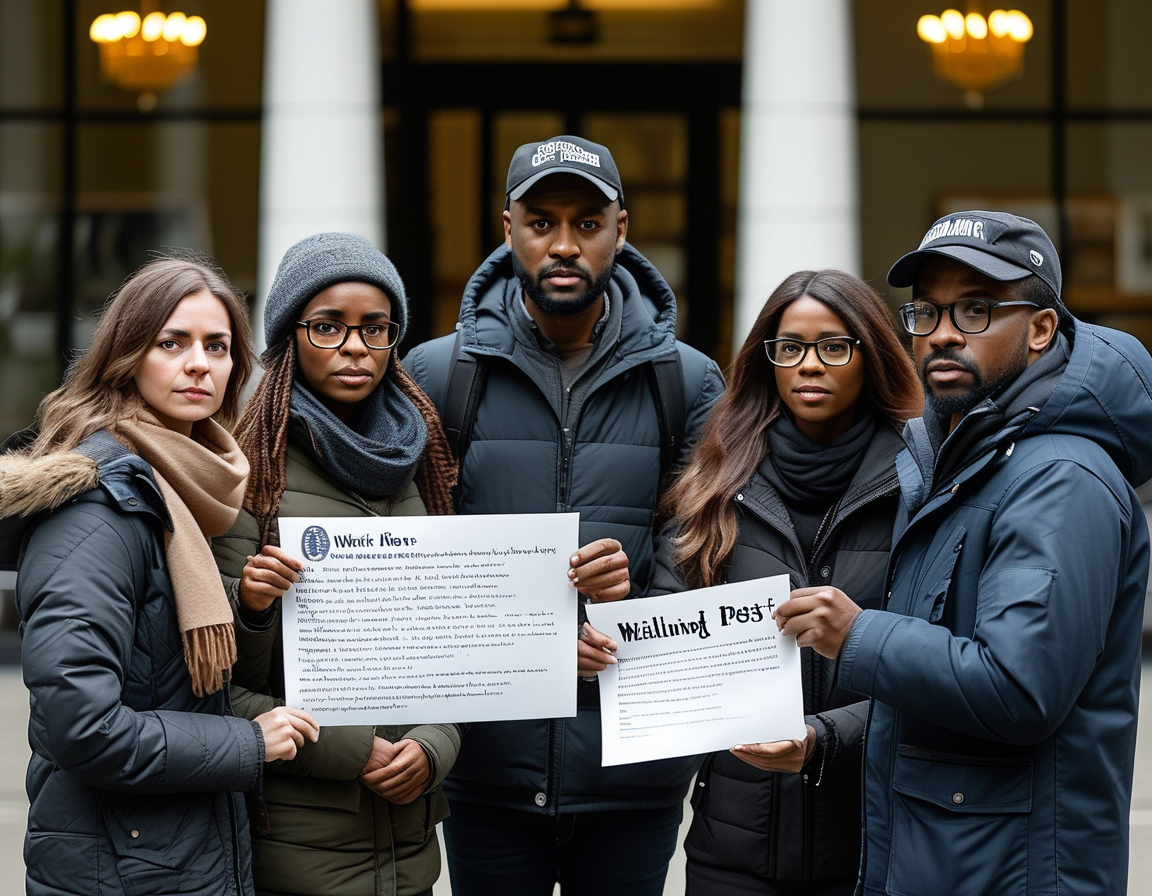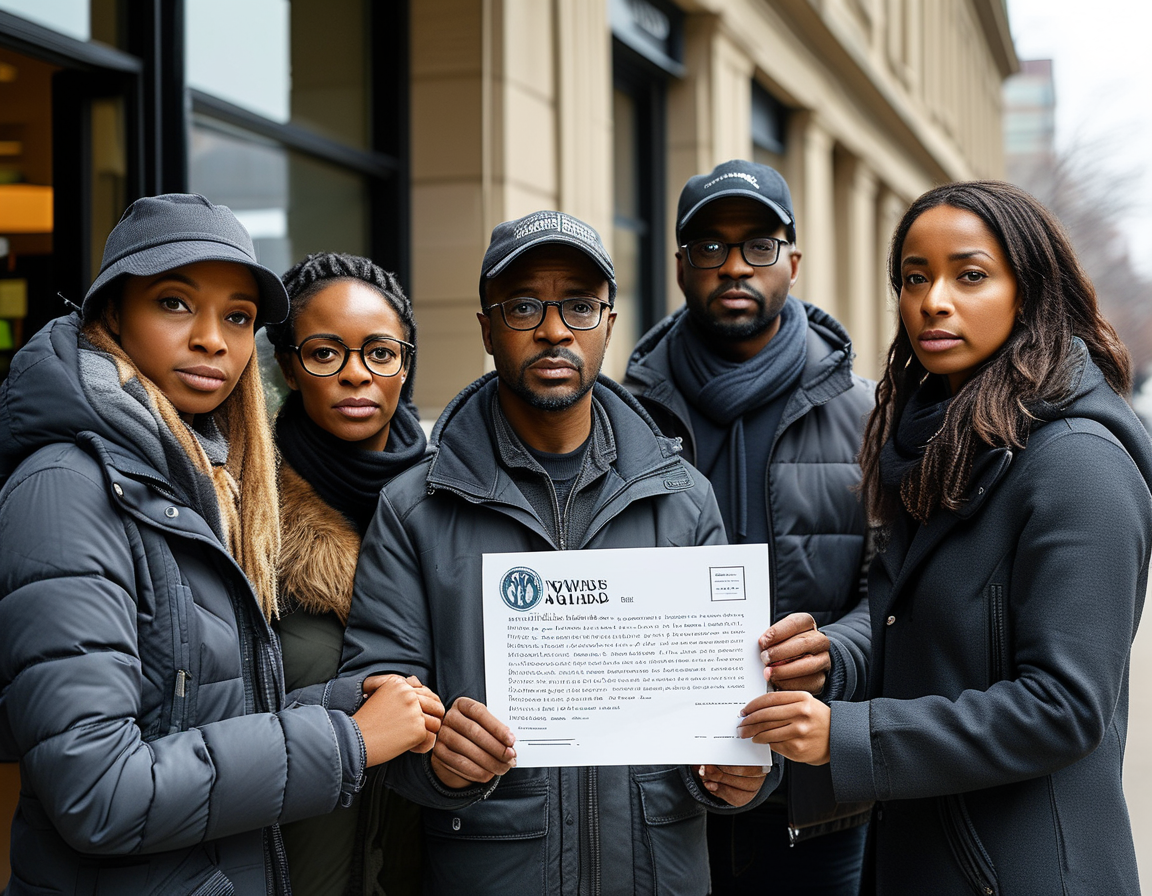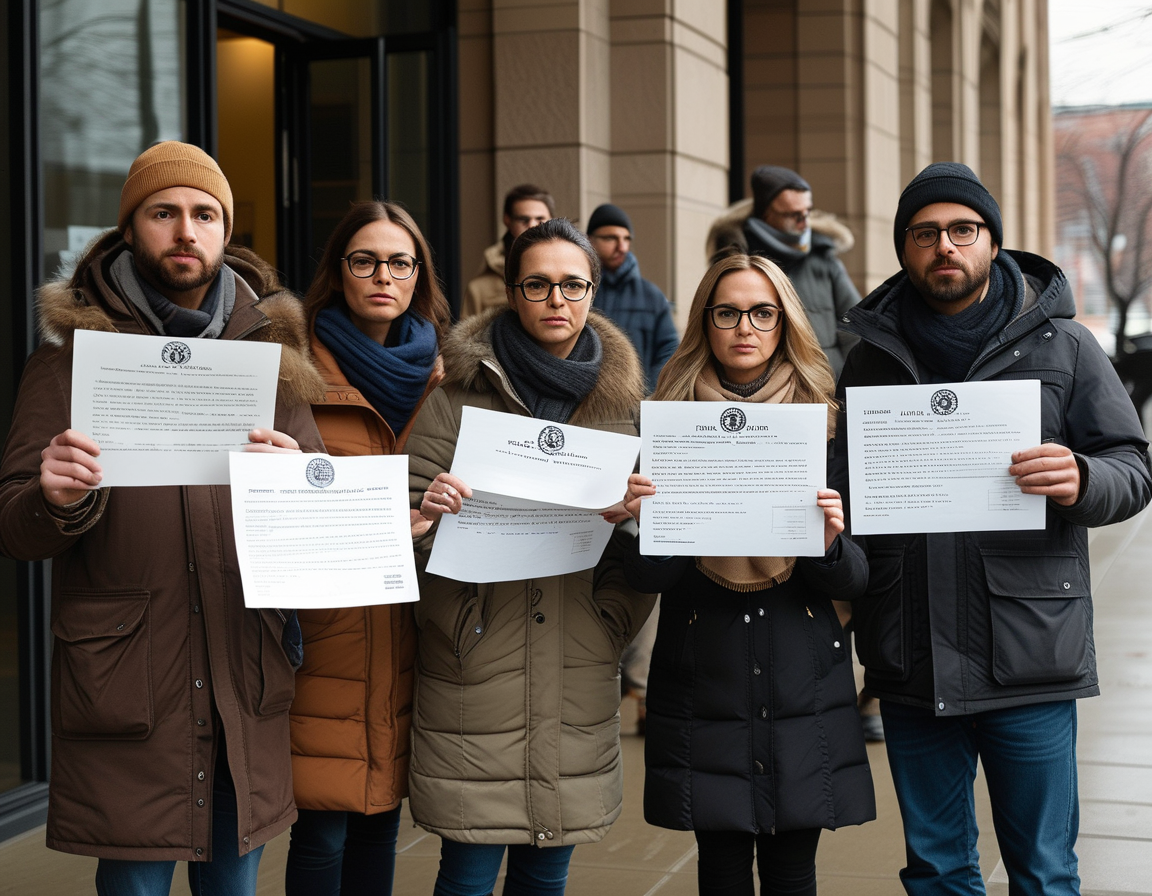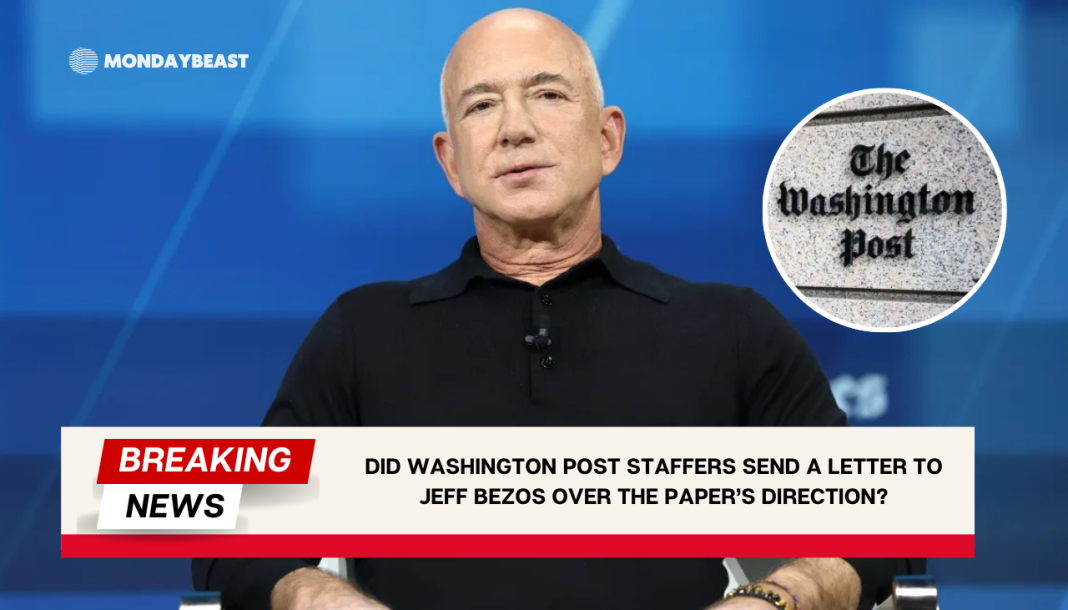The Washington Post is in turmoil. Over 400 staffers have written an urgent letter to owner Jeff Bezos. They voice serious concerns about the paper’s current direction.
This isn’t just a few disgruntled employees. This is a significant number of influential journalists. They feel their integrity and the institution’s reputation are at risk. Some even question if the Post can remain a trustworthy source of news.

The letter represents a collective cry for help. It reflects a growing unease among employees. What have they lost faith in? Their leadership, specifically the figure of CEO William Lewis.
Lewis has made waves since taking charge. His decisions have led to a flurry of high-profile departures. This left employees worried about the future. The paper has a tradition of journalistic excellence. They rightfully fear for its legacy.
Bezos moving in and out of the news cycle feels precarious. He’s owned the Post for years but largely stayed away from its daily operations. This hands-off approach has upsides, such as journalists writing fearlessly about him. Yet, his absence causes instability too.

In the letter, staffers do not name Lewis directly. But the message is clear: they want leadership they can trust. They want a back-and-forth dialogue with Bezos. They need clarity about the paper’s vision.
One of the alarming quotes from the letter states, “…recent leadership decisions that have led readers to question the integrity of this institution.” This sentiment resonates deeply; it touches on a fundamental issue in journalism.
You might remember when the newspaper abruptly blocked an editorial endorsement of Kamala Harris. Many subscribers were outraged. They canceled subscriptions in protest. This incident exemplified the fracture between management and staff.

The letter’s signees include notable journalists, like Dan Balz. Their signatures reflect widespread concern across the board. As longstanding figures in journalism, they hold the institution to high standards. They want a competitive edge, too. They want the public to trust them again.
The Washington Post is a large, complex organization. Amid the discontent, many hope Bezos will step in. In his rare comments, Bezos mentions ideas but offers little more than vague promises. The urgency for clarity is palpable.
How many readers appreciate this internal struggle? On one hand, the Post has been a beacon of journalism. On the other hand, instability threatens its very foundation. Can it endure these growing pains?
What’s your take? Is Bezos the right person to guide the Post effectively? When he purchased the publication, expectations ran high. Many readers wanted a change – but not necessarily this kind of change.
As this unfolding drama continues, the newsroom watches closely. Employees want their voices to be heard, loud and clear. They need a leader willing to engage with them. They seek solidarity.
In the world of journalism, trust is everything. The Washington Post’s situation offers lessons for all industries. When leadership falters, those beneath may feel compelled to step up and speak out.
So, what lies ahead for the Post and its signature “W”? Will Bezos take the necessary steps to stabilize his investment? Or will we see further fragmentation? The next chapter holds both questions and risks.
Let’s not forget; these are real people behind the headlines. They are searching for purpose, clarity, and a way to rebuild trust. It’s an ongoing narrative in the dark landscape of modern media.




